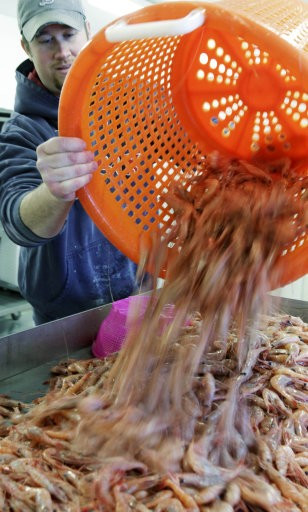'Black Fish' Scam: Scottish Authorities Bust £60M Fisheries Scam

A long-term investigation by the Scottish Fisheries Protection Agency (known as Marine Scotland) and the local police, into a £62.8 million fisheries fraud, which occurred between Jan. 2002 and March 2005, has resulted in the arrest and charging of at least 17 fishing boat captains and a number of fish processing companies.
Those arrested have been charged, according to a BBC report, with offloading significantly more fish (by weight) than they were otherwise allowed to, under European Union (EU) rules meant to protect fish stocks.
Judge Lord Turbull, hearing the case, noted the people involved had acted in a "cynical and sophisticated" manner and the scheme was a "deliberate and calculated attempt to evade the quota system".
The sentencing will happen in May.
According to details, the people involved had established complicated systems of rigged weights and falsified data that showed they had caught less than they actually had. The BBC report noted: "Two computer systems were in place in the processing plant to weigh the fish coming in. One showing the true weight was hidden in the loft. The other, watched by fisheries officers in the main hall, gave a false reading".
Investigating agencies spent approximately 1,700 hours tracking paper trails and accounting data. The investigation itself took nearly 18 months, before the police were called in to help.
Meanwhile, in a STV report, George Anderson, 55, one of the arrested individuals, said he could not throw under-sized herring and mackerel because he found the practice "repugnant".
"Organised crime takes many forms. These individuals may not have been involved in drug dealing or prostitution, but let us make no mistake that they were involved in significant and serious organised criminality," said Lindsey Miller, the Head of the Serious and Organised Crime Division of the Crown Office.
© Copyright IBTimes 2025. All rights reserved.



















